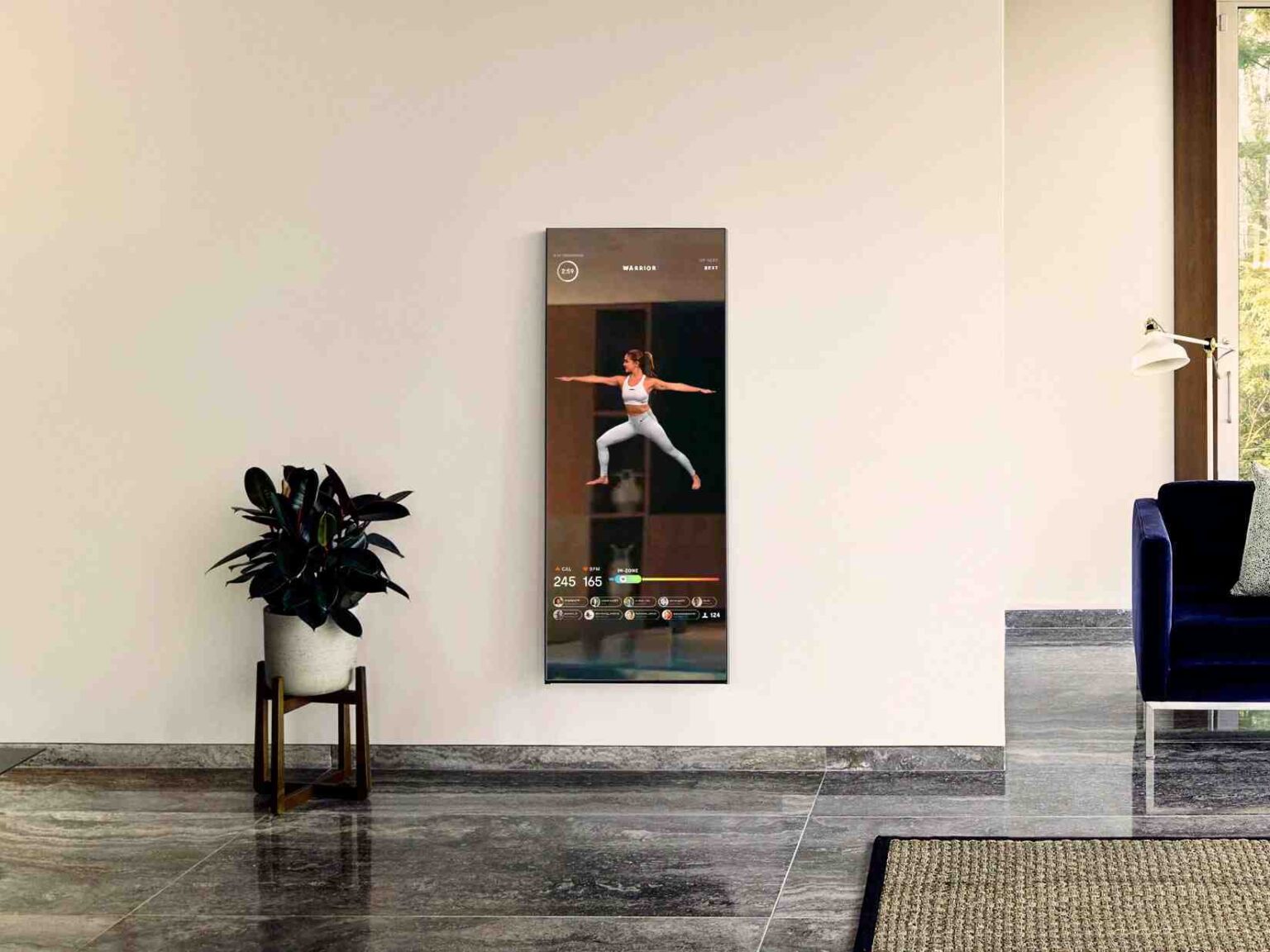
Are workout mirrors *really* going to replace personal trainers?
We’ve seen it before – the fitness world constantly evolves, embracing flashy tech to lure us in, but are workout mirrors the true game-changer we’re led to believe? These sleek screens promise an AI-powered genie to whip us into shape, replacing sweaty one-on-ones with personal trainers. Shiny endorsements and lofty claims echo across social media, but let’s sift through the hype. Can mirror workouts like Tempo, Mirror, and Tonal really stand up to the old-school human touch? The pursuit of sculpted perfection rages on.
 Let’s get reflective
Let’s get reflective
Think workout mirrors are just glorified webcams in chic frames? Think again. Modern fitness mirrors like the Mirror, Tonal, and Tempo offer AI hocus-pocus that not only visualizes your personal trainer but provides real-time feedback. These gadgets are blending the tactile, the virtual, and the fitness regimes pooled from sweat gurus in one gleaming rectangle.
Take the Mirror, for instance. It’s like stepping into your own interactive fitness show, complete with the ability to see yourself and make adjustments on the fly. Tonal steps it up with resistance training. Imagine a strength coach that knows just when you need to push harder without stepping into your personal space. Tempo’s real innovation? It uses 3D sensors to correct your form, making sure you don’t accidentally launch yourself across the room doing a rogue deadlift.
Yet, despite the glowing reviews and the backing of tech titans, the question remains: Would these AI energizers replace your lovable, human personal trainer? Studies suggest hybrid approaches yield the best results. While AI excels in monitoring and adapting your workout in real time, nothing quite beats the human touch for motivation and accountability. In the words of RuPaul, “It’s all about balance, darling.”
 Mirror, mirror on the wall
Mirror, mirror on the wall
Each of the top contenders — Mirror, Tempo, and Tonal — offers a unique twist on fitness, armed with cutting-edge AI. Mirror displays both a personal trainer and your reflection, ensuring you’re mirroring the moves perfectly. Tempo doubles down with 3D sensors, providing form correction in real-time, almost like having a trainer at your disposal.
Yet, what sets these high-tech gadgets apart is their accessibility. Workout mirrors are available anytime, removing the logistic hurdles of scheduling personal trainers. For individuals who value their privacy and prefer to sweat it out solo, these gadgets offer a streamlined, at-home experience that’s hard to beat.
But here’s the twist: Can AI genuinely personalize workouts the way human trainers do? While data from the Journal of Strength and Conditioning Research suggests personalized training plans maximize results, AI still faces challenges in recognizing the nuanced feedback only trained eyes can catch. Machines learn quickly, but the human touch remains irreplaceable — for now.
 Reflect on this
Reflect on this
Despite what the gadget hustle suggests, workout mirrors aren’t simply over-hyped trinkets. These sleek devices, such as Mirror, Tonal, and Tempo, combine AI-driven guidance with human trainer ethos, creating a hybrid fitness experience. They deliver on real-time feedback, form correction, and adaptable workout plans, making sure every rep counts.
Mirror, for example, lets you exercise alongside your virtual trainer and your reflection, aiding self-adjustment in real-time. Tonal goes a step further with dynamic resistance training, acting as your silent strength coach who knows when to push or ease up. Tempo’s 3D sensors assure precision, correcting forms to prevent exercise blunders.
Can these *reflective tech marvels* outshine human personal trainers? Not quite. Studies indicate that while AI can tailor and tweak your workouts on the go, humans excel at providing motivation and accountability. It’s about blending the best of both worlds, as even RuPaul would say, “balance is key, darling.”
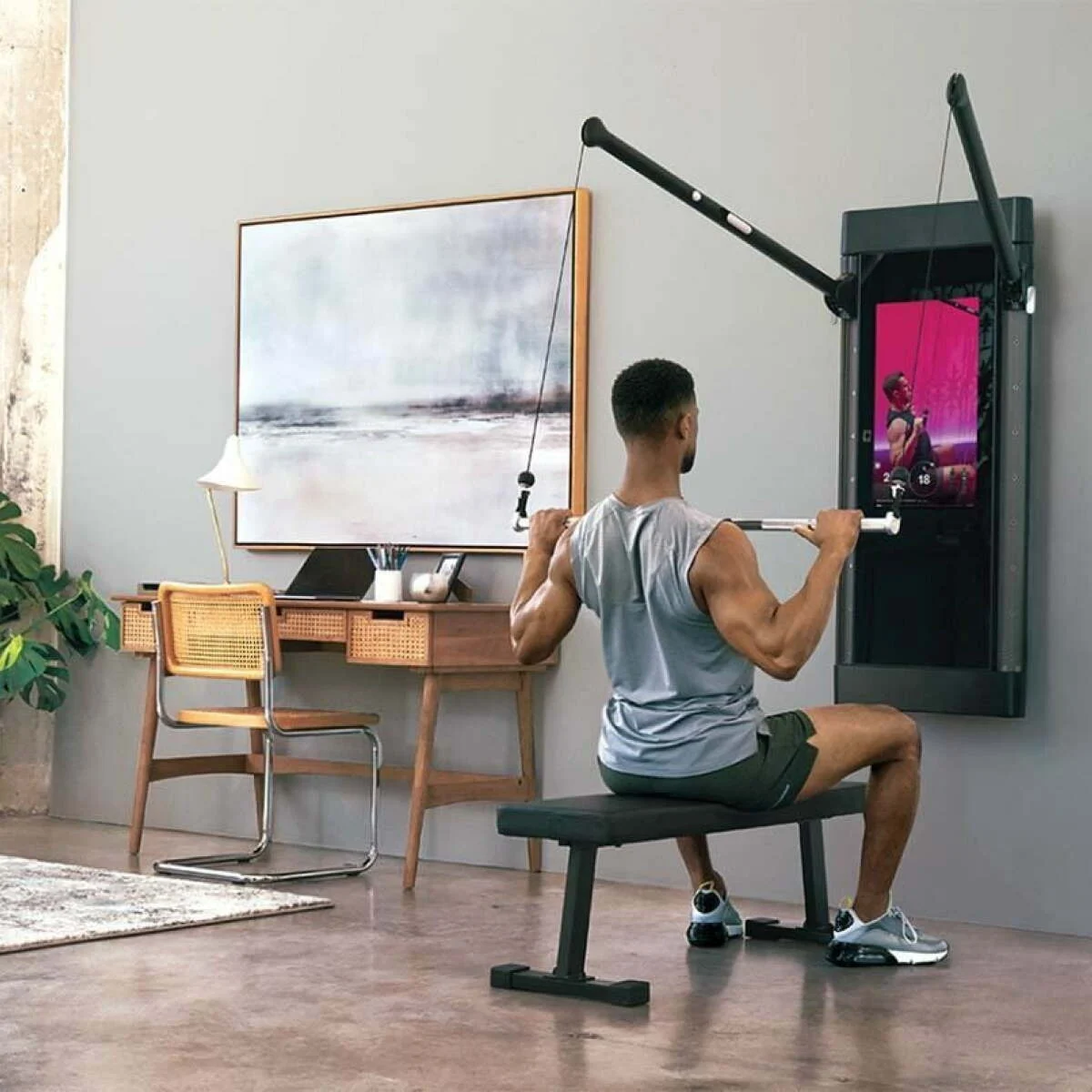
The human element
Fitness mirrors work by displaying a professional trainer on a screen to lead you through a workout. Some options act as actual mirrors that allow you to see yourself and the trainer as you exercise, allowing you to self-correct your form. Other options aren’t actually mirrors at all, but give you AI-powered form recommendations, among other smart features.
While these workout mirrors, like Mirror, Tempo, and Tonal, offer some pretty futuristic perks with AI real-time feedback, one wonders if they can truly replace the personal touch of a human trainer. Reviewers admit tech can guide you physically, but motivational vibes often fall flat without direct human interaction. So, they’re good—just not perfect.
Besides, pricing can be quite a barrier. While an AI trainer inside a high-tech mirror is always on call, ready to push you past limits, it may not scream accessibility in terms of cost. In essence, these workout innovations shine bright in the fitness universe, making quite the statement, but the personal trainer isn’t leaving the stage just yet.
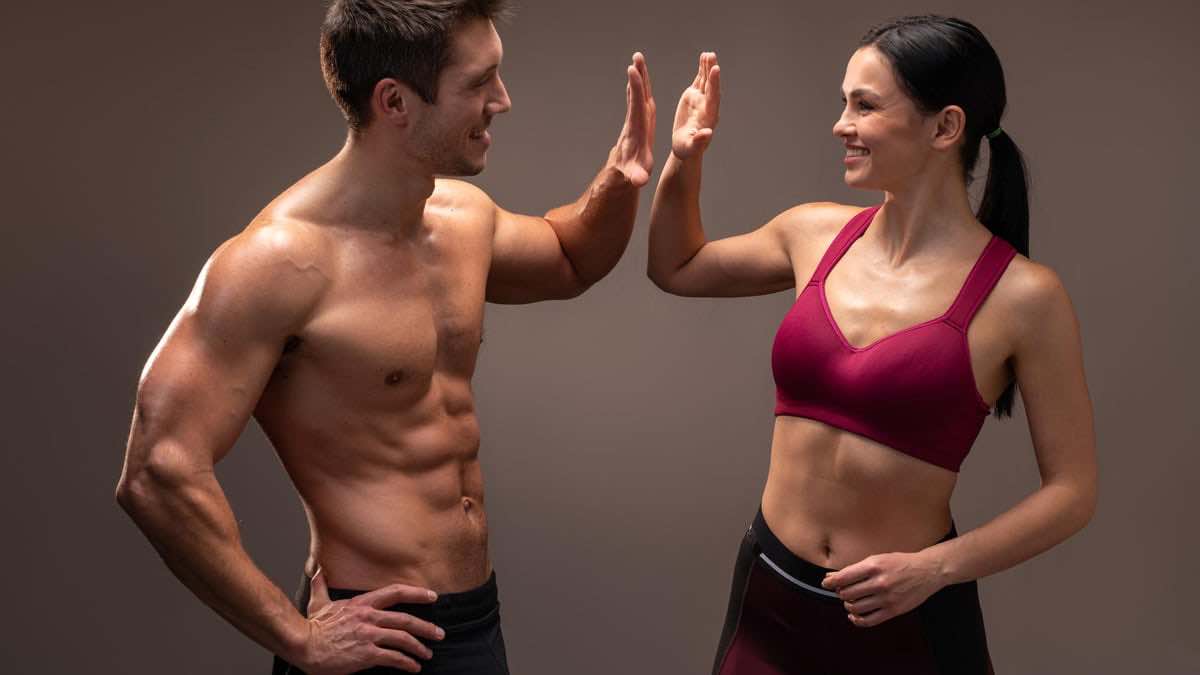 Final reflections
Final reflections
While workout mirrors like Mirror, Tonal, and Tempo are revolutionizing at-home fitness with their AI-driven prowess, they’re not likely to send personal trainers packing just yet. These smart devices offer unparalleled convenience, snappy feedback, and sophisticated training regimens tailored to individual needs. And honestly, they look pretty darn chic.
However, tech superiority comes with a price tag and a potential lack of the nuanced human touch necessary for motivation and accountability. Studies consistently show that while AI excels in form correction and consistency, it struggles to replicate the personalized encouragement and dynamic feedback a real trainer provides.
For die-hard enthusiasts seeking the best of both worlds, a hybrid approach may be the ultimate solution. Embrace the future with your friendly fitness mirror, but don’t be too quick to ditch the human connection that has kept personal training effective—and beloved—for so long.




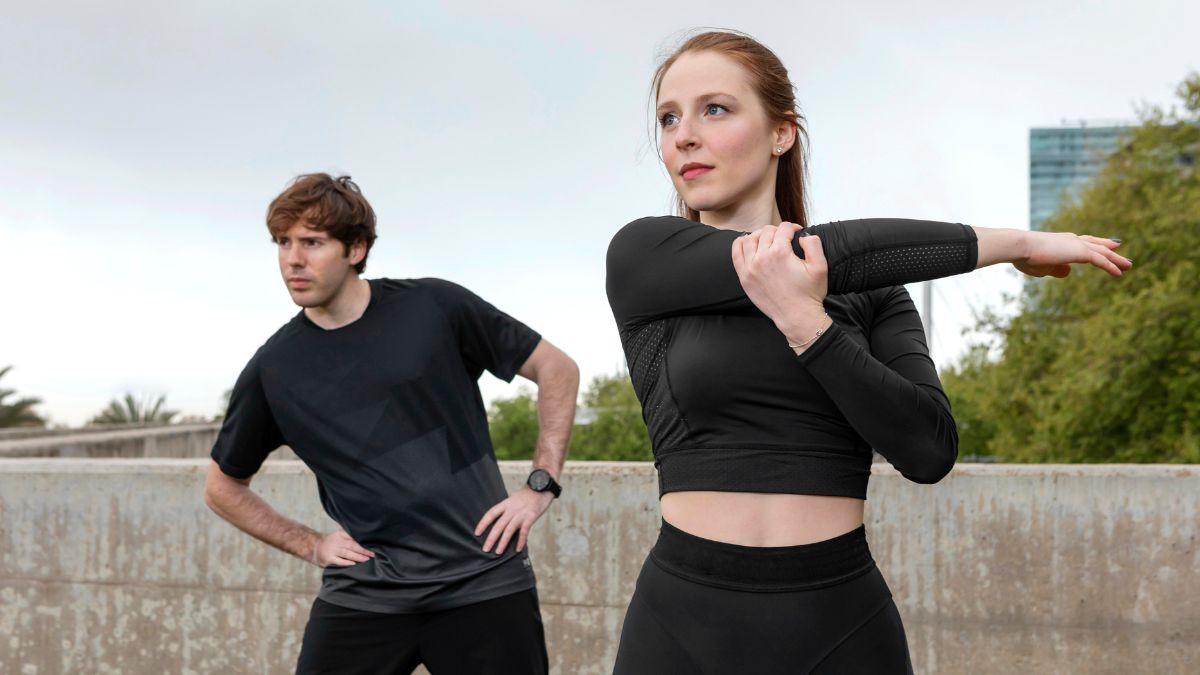 Let’s get reflective
Let’s get reflective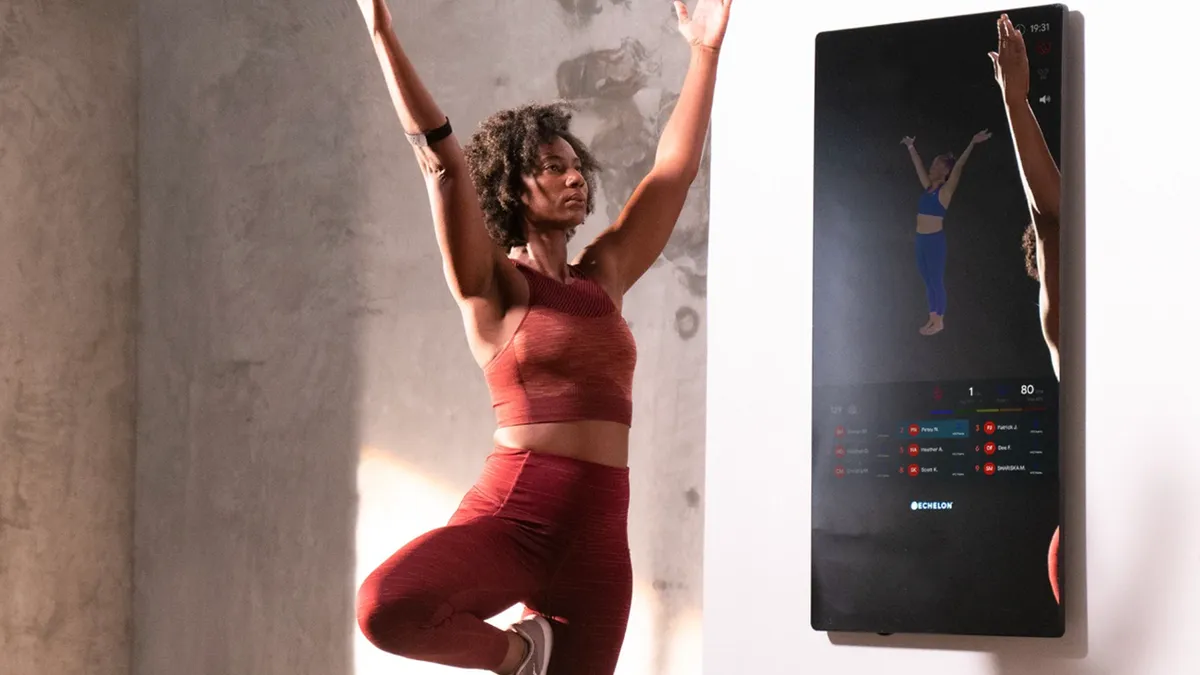 Mirror, mirror on the wall
Mirror, mirror on the wall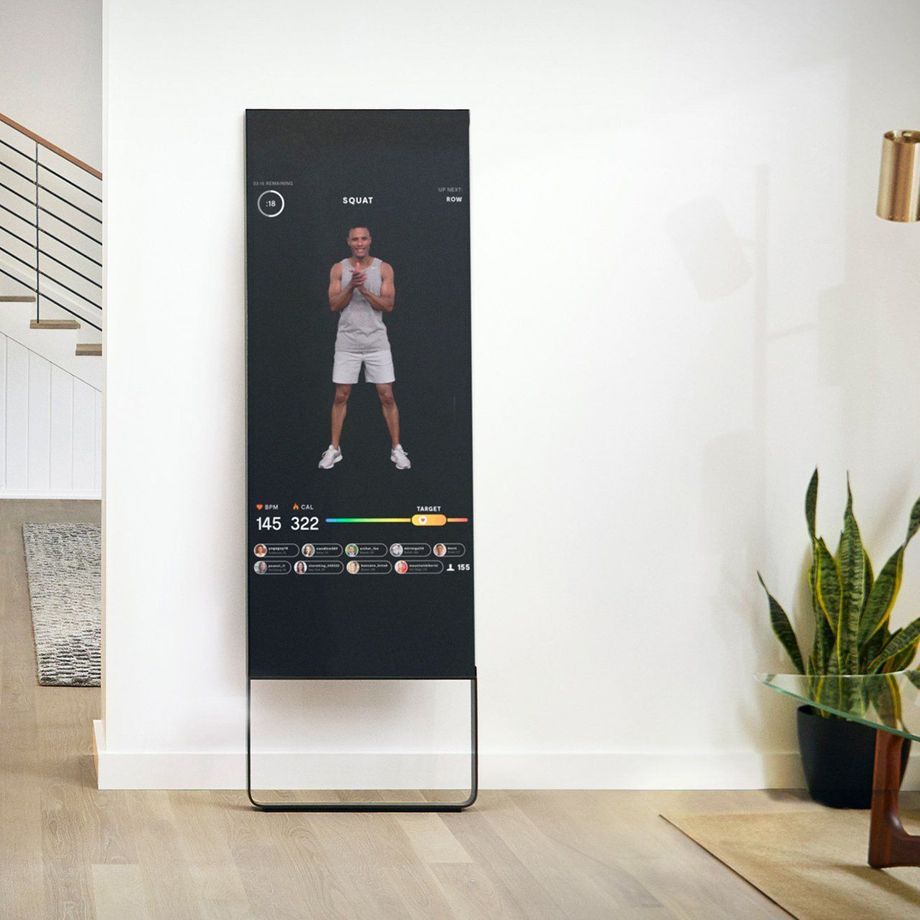 Reflect on this
Reflect on this